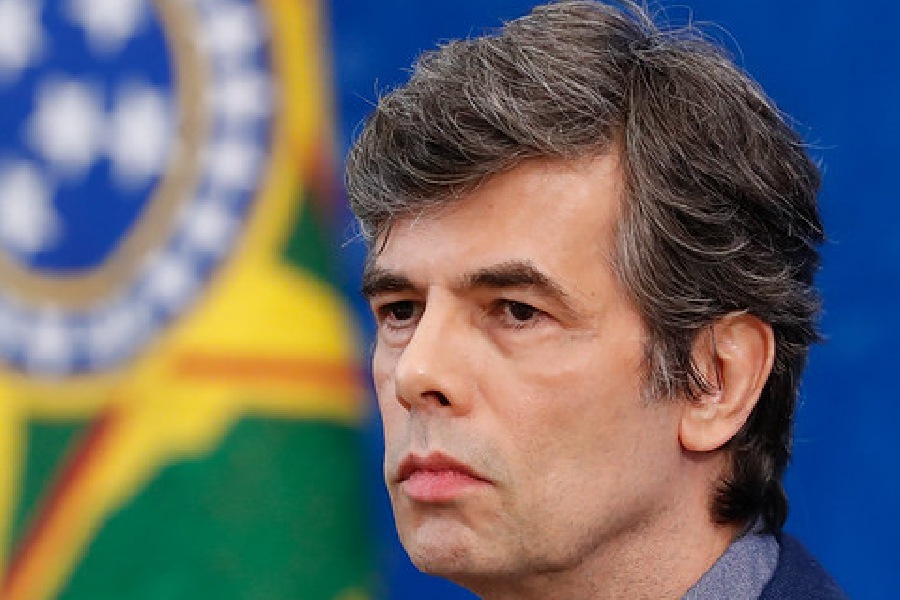0707RIO DE JANEIRO, BRAZIL – With at least four states lined up seeking more ICU beds in the public hospital system during the coronavirus pandemic, Health Minister Nelson Teich is considering the option of creating a single wait list, including both public and private networks, for these beds that are vital for the survival of critically ill patients.

Asked by journalists about this option, the Minister said that he would discuss this with the private sector when the situation reaches “the limit” and considered that a measure like this (adopted in countries like Spain and Ireland) could have implications for a post-pandemic period.
“If we reach the limit, we will sit down with the private sector and find a way to get additional health care to be part of this SUS [National Health System] solution in a cooperative way, rather than just taking it,” said the Minister, who argued that the suggestion made by some medical bodies is not a wait list, but rather a confiscation. “There is no chance of us dreaming of losing someone when they can be saved. This needs to be made very clear,” he added.
When the country records 8,536 deaths, with over 600 notified deaths for the second consecutive day, the Ministry of Health also announced a new testing program, with the help of IBGE (Brazilian Institute of Geography and Statistics), to try to determine the real extent of the epidemic in the country by sampling.
The issue of the line waiting for ICUs in the country has been on the table for weeks. In early April, several health organizations published a manifesto in defense of a single wait list for all intensive care beds.
They argue that centralization by the Federal Government is needed, because it can plan patient transfers to less congested regions, establish severity criteria and an order of arrival, so that the population will not be deprived of a basic structure for their survival in case they are severely affected by Covid-19.
In Brazil, ICU beds are split half and half between public and private hospitals, but the latter serve only a quarter of the country’s population.
Pressed by relatives in despair, the courts rule on the delivery of beds to try to ensure care to patients in places where the public system is already at its limits. Experts say the judicialization of the issue will lead to more chaos than the immediate definition of criteria.
On Wednesday, May 6th, Teich spoke for the first time about the organizations’ suggestions. He said it would be irresponsible to take a final position on a complex issue, that this is not a decision on health alone, and advocated a long discussion with the private sector before any action was taken.
While the health systems of several capitals are collapsing and Brazil climbs to sixth position in the world in terms of deaths by Covid-19, the Minister said that Brazil needs to be “efficient enough for the SUS to be able to deal with the pandemic” and that some private hospitals are offering their structure in a scenario of available beds in some of the private network facilities. “The single wait list is a situation that I must study much more carefully because it has implications that go beyond this moment. We can sit down and negotiate the hiring of beds,” he said.

Sampling
Seventy days after the confirmation of the first case of coronavirus, Brazil is still designing strategies to try to gauge the extent of the epidemic.
On Wednesday, May 6th, the Secretary of Surveillance of the Ministry of Health, Wanderson de Oliveira, also announced a new program for testing the coronavirus, which intends to examine 12 percent of the Brazilian population.
According to Wanderson, 222 sentinel health facilities currently in place in Brazil will now collect respiratory samples to test all symptomatic patients who seek them. Until now, tests in mild cases were limited.
Furthermore, emergency collection facilities will be implemented in all cities with more than 500,000 inhabitants, capital cities, and metropolitan regions. The IBGE will also contribute to this process, with estimates to determine the extent of the pandemic through sampling.
The secretary also said that a public-private partnership with laboratories will help end the testing wait list (which currently stands at 100,000) in the coming weeks, which will impact the number of confirmed cases of the disease in the country. The country currently records 125,218 confirmed cases of coronavirus, according to the Ministry of Health.
Wednesday was the second consecutive day in which the country recorded more than 600 deaths in a day, but not all deaths occurred in the past 24 hours. There is a gap in notifications due to the backlog of tests.
“We’re going to end the testing backlog. This will cause the number of cases to increase as well because there are many results waiting to be entered into the system. In all cities with more than 500,000 inhabitants, capitals, and metropolitan regions, we will have emergency collection facilities. The samples will be collected quickly. We will have the results back for the doctor and the patient between 24 and 96 hours”, explained Wanderson Oliveira.
Source: El País

